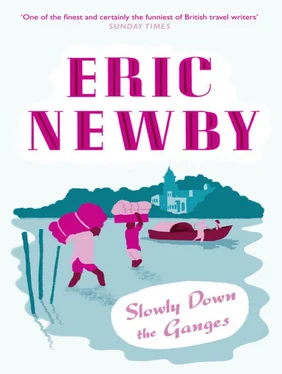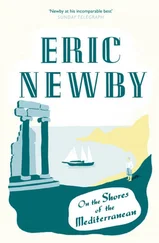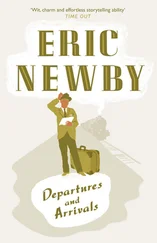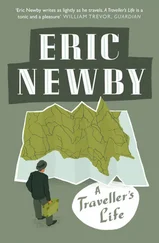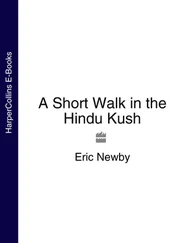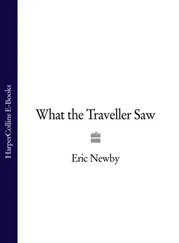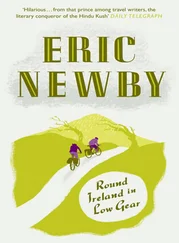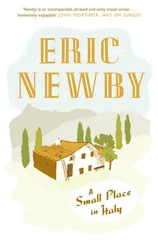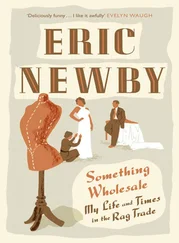The other crops were mustard and tobacco. At one time, as the result of the efforts of two British officers, tobacco grown in the forests of Bhogpur, a town somewhere to the south-east, had been so esteemed that, mixed with Latakia and Manila leaf, it had been sold in tins, but this like so many other ventures had eventually come to nothing. In the fields round about the village, stood the machans, rickety constructions in which watchmen sat at night to scare off wild animals, principally wild pig and nilgai that would play havoc with any crop if they succeeded in entering it. Armed with a pot containing a smudge of fire they passed the hours of darkness groaning apprehensively and calling to their neighbours in other machans in order to keep up their spirits.
The Headman, an old-looking man but probably not more than fifty, spoke with nostalgia of the days when the British were still in India.
‘Your honour,’ he said, ‘this village is often flooded and at such times we are in great misery. We have asked the Government to provide us with an embankment. That was more than a year ago and so far nothing has happened. In the time of the Raj such a thing would not have been allowed. A Sahib would have come on his horse and quite soon all would have been well.’
‘I wonder,’ G. said, ‘why they did not ask the Sahib for an embankment when he was coming here on his horse.’
In the circumstances this did not seem to be a good time to produce Mr Nehru’s letter which asked for assistance on our behalf, rather than proffering it. Instead we bought some potatoes and some stunted eggs for the boatmen, and the Headman gave us a bunch of green bananas. This was the extent of our shopping, for this was all they had to offer us. The Headman was genuinely sorry to see us go, as were the other inhabitants and we left watched by the women. They were wraith-like, swaying figures dressed in the lugri, the poor woman’s version of the sari, and wrapped overall in yet another sheet called the chadar. There are some 450,000 villages in India similar to this, all with less than 500 inhabitants, all with similar problems. Who can know what it is like to live one’s life in a village such as this with its 300 inhabitants and its 5,000 bighas 13 of land, except those who are born there and live in it all their days? Not even the most assiduous anthropologist or the most devoted social worker. The windowless front that this village presented to the world seemed to be a symbol of the inhabitants: turned in upon themselves by its very layout, as if in a hall of mirrors; still, in spite of legislation, inhibited by consideration of caste; still, in spite of legislation, the victims of moneylenders paying off their never-to-be-discharged debts at an interest of anything up to 25 per cent; desiccated by the summer sun; ploughing through a Passchendaele of mud in the rainy season; creeping into the fields to put out a black pot to ward off the evil eye. Poor ignorant people, living on a knife-edge between survival and disaster.
CHAPTER SIX The way to the Balawali Bridge
The river is not navigable until it reaches the vicinity of Nagal in pargana Najibabad.
District Gazetteer of the United Provinces , Vol. XIV, Bijnor ; Allahabad, 1908
Back in the boat I began to feel better. The weather was fine and warm, like a beautiful summer’s day in England; the sort of day I remembered, or thought I remembered, as being commonplace when I was a child and now only half-believed had ever been. To the north the Siwalik Hills had reappeared once more, wrapped in a haze which gave them an agreeable air of distance. Behind them rose a cluster of snow peaks, while downstream and far below the level at which we were, the jungle on our left extended eastwards to the foot of the mountains like a great green rug.
In spite of all the difficulties everyone, including Bhosla, whose lugubrious appearance and taciturn manner concealed and belied an optimistic nature, was in good spirits. I myself had not felt so well for years. Hard exercise and short commons, as my father would have called them, and minimal quantities of alcohol were all conspiring to do me good. Even my feet, now that I had decided to sacrifice one of my two pairs of shoes to the river, no longer hurt. It was fortunate that this was so, as we were now faced with the task of digging yet another channel for the boat, this time thirty yards long, to the head of the next fall, down which we plunged into a deep pool of green water in which the bottom could only be dimly seem. Here we let the boat drift aimlessly while we each ate half an orange, a surprise treat which Wanda produced from her useful bag.
The next rapid, the twenty-seventh since leaving Hardwar, was a long narrow race between banks eight feet high, two vertical slices of silt marked with long scourings, one below the other, the lower ones not yet dry, a reminder if we needed any that the water level was sinking fast. ‘Much more than two inches a day,’ said G., gloomily. But whatever was happening to the water level, the appearance of the river bed itself was changing too. Westwards it broadened out in huge expanses of sand and shingle. There was a feeling of great loneliness in this place, borne out by the map which gave no indication of any settlement or habitation.
We entered a wide lagoon in which there was no perceptible current and went aground in it. By now our sense of well-being had deserted us and we felt weak and disinclined to face new difficulties, for it was now one o’clock and so far we had had little to eat. Languidly gnawing giant white radishes, we splashed ashore and set off, each on a different course, to try and find a usable channel, leaving Wanda to curry rice and potatoes for the boatmen.
After twenty minutes during which the only living thing I saw was a crab too small to be worth eating, we reassembled. All reports were bad: the lagoon ended in a trickle of water with a short fall to the next reach; somewhere in the centre there was another, longer fall, but it was almost as feeble as the first; far over to the right there was a third that was deeper than the others, but very long. This was the one that Karam Chand favoured. After a good deal of wrangling and a frugal lunch – a tin of sardines, three cream crackers, two sweet biscuits and jam and a mug of tea – not much of a meal on which to push a boat through India (for that is what we seemed to be doing) – we decided to try it. We unloaded the boat, leaving Wanda to guard the gear, and pushed it back the way we had come and round a promontory to the head of the fall.
After all the business of lightening the boat it was enraging to find ourselves making an easy descent in ghostly silence by a narrow sluice-like run with a sandy bottom. It was a journey of only half a mile, but by the time we had carried everything down from the lagoon to the boat, we had each covered four times the distance.
The whole operation had taken nearly three hours; but it seemed worth it. Before us stretched what appeared to be the longest, most inviting reach we had so far encountered. There were no sandbanks and there was no sign of any rapids. To me, in one of those moments of insane optimism which no amount of experience was capable of shattering, it seemed that we might, with a little luck, reach the Balawali Bridge by nightfall; but no sooner had I expressed this hope than we were grounded again – this time in quicksands which quivered underfoot in a particularly horrible manner, as if one was walking on a blancmange.
At four-thirty we came to a place where four men were sitting marooned in mid-stream on four grass rafts on which they had been attempting to float downstream to their village which was somewhere near a place called Nagal on the way to Balawali Bridge. As we came abreast of them they appealed to us to take them aboard. ‘We, too, are watermen,’ they said. This was an admission so rare in our experience on the Upper Ganges, where everyone we had met had hastened to dissociate himself from it, that we would have taken them with us if for no other reason.
Читать дальше
